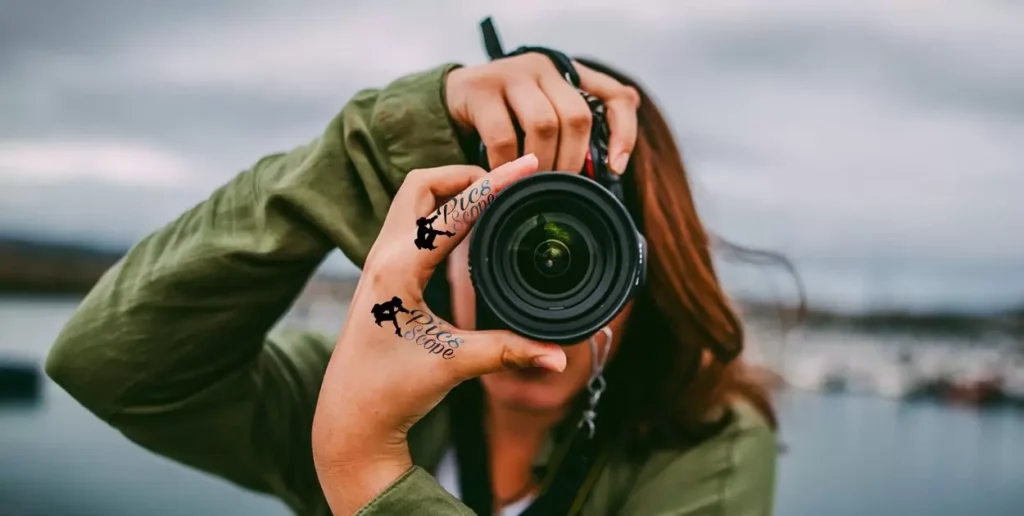Photography business as a teenager refers to the entrepreneurial pursuit of running a photography venture by individuals in their teenage years. It involves capturing moments, offering services, and building a brand to earn income while balancing academic commitments and gaining valuable early experience in the photography industry.
Capturing moments is your passion, and turning that passion into a thriving photography business is easier than you think, even as a teenager. Ready to turn your love for photography into a profitable venture? Discover the step-by-step guide on how to start a photography business as a teenager and frame your future success today!
Starting a photography business as a teenager involves honing your photography skills, creating a portfolio, and setting affordable rates. Utilize social media to showcase your work, network with local businesses, and consider offering discounted services to build a client base while gaining valuable experience.
Business Ideas For Teens
Looking for business ideas for teens? Start by exploring simple ventures like pet sitting, lawn care, or tutoring. These hands-on activities not only help develop valuable skills but also provide a chance to earn some extra cash.
Consider online opportunities such as selling handmade crafts on platforms like Etsy or offering digital services like graphic design. These ideas empower teens to turn their hobbies into profitable ventures, fostering a sense of independence and entrepreneurial spirit.
Understanding Your Passion for Photography
Photography is an exciting and creative pursuit. When you explore your passion for photography, you learn to capture moments that tell unique stories. Discovering the technical aspects and expressing your creativity through the lens allows you to truly understand and enjoy the art of photography.
As you delve into this passion, you grasp the importance of composition, lighting, and perspective. Embracing photography not only sharpens your skills but also provides a fulfilling outlet for self-expression. Through your lens, you can share your perspective with the world, creating lasting memories and conveying emotions that words sometimes can’t capture.
Setting Clear Goals for Your Business
In business photography, setting clear goals is crucial for success. Clearly defined objectives help guide your efforts and ensure a focused approach. Whether it’s increasing client base, improving skillsets, or expanding services, articulating specific goals provides a roadmap for progress.
When setting goals for your photography business, be specific and measurable. Instead of a vague aim like “improve skills,” specify attending a certain number of workshops or mastering a particular technique. This clarity not only enhances motivation but also makes it easier to track and celebrate achievements, fostering growth in your business and photographic abilities.
Building a Solid Photography Skill Set
Enhancing your photography skills involves practicing regularly. Capture a variety of subjects and experiment with different settings to understand your camera better. Active engagement with your equipment and continuous learning are key to building a strong foundation in photography.
Developing a solid skill set also requires seeking feedback from peers or mentors. Constructive criticism helps identify areas for improvement and accelerates your growth as a photographer. Remember, building expertise is a journey, and consistent effort will lead to a well-rounded and accomplished photography skill set.
Choosing the Right Photography Equipment
| Aspect | Tips |
| Camera Selection | 1. Identify your photography needs. |
| 2. Consider your skill level. | |
| 3. Research camera types and models. | |
| Lens Options | 1. Determine the types of shots you want. |
| 2. Understand focal lengths and apertures. | |
| 3. Invest in versatile and quality lenses. | |
| Tripods and Stabilization | 1. Assess the stability requirements. |
| 2. Choose a tripod with adjustable features. | |
| 3. Consider portability for on-the-go shoots. | |
| Lighting Equipment | 1. Understand various lighting setups. |
| 2. Invest in both natural and artificial light. | |
| 3. Explore modifiers for creative effects. | |
| Accessories | 1. Research essential accessories. |
| 2. Prioritize based on your photography style. | |
| 3. Ensure compatibility with your gear. | |
| Storage and Editing Tools | 1. Select high-capacity and reliable storage. |
| 2. Invest in quality editing software. | |
| 3. Back up your files regularly. |
This table provides a structured overview of tips related to choosing the right photography equipment, covering various aspects such as camera selection, lens options, tripods, lighting, accessories, and storage/editing tools.
Creating a Unique Photography Style
Developing your own photography style is exciting. Experiment with various techniques and settings. Capture images that reflect your personal vision.

Explore different genres like portraits, landscapes, or abstract photography. Play with lighting and composition to make your photos stand out. Embrace your creativity and let your unique style shine through.
There are no strict rules in photography. Trust your instincts and have fun as you discover the distinctive elements that make your work truly yours. Your individual style will make your photos memorable and leave a lasting impression on viewers.
Learning the Basics of Business and Finance
In business and finance photography, mastering the basics is crucial. Capture clear images that tell financial stories, emphasizing key details. Develop your skills in framing, lighting, and composition to create compelling visuals that effectively communicate financial concepts.
Understanding the principles of business and finance is essential for photographers in this field. Sharpen your focus on capturing the essence of financial transactions, investment moments, and corporate settings. By combining photography techniques with financial knowledge, you’ll be able to create impactful images that resonate with your audience and convey the intricacies of the business world.
Building a Portfolio that Stands Out
Creating a standout photography portfolio is essential for showcasing your skills. Select your best and most diverse shots to highlight your versatility. Use a clean and organized layout to grab the viewer’s attention instantly.
In your portfolio, Photography Coffee Table Book focus on telling a visual story that reflects your unique style. Include a mix of close-ups, landscapes, and portraits to demonstrate your range. Remember, a compelling portfolio not only displays technical proficiency but also captures the essence of your artistic vision.
Utilizing Social Media for Marketing
Social media is a powerful tool for marketing photography. Photographers showcase their work on platforms like Instagram and Facebook to reach a wider audience. Engaging posts and regular updates help build a strong online presence, attracting potential clients and creating opportunities for collaboration.
By actively participating in social media communities, photographers can connect with their audience, receive feedback, and stay updated on industry trends. This dynamic approach not only promotes their work but also establishes a personal connection with followers, ultimately boosting their photography business.
Can A 16 Year-Old Start An Online Business
Starting an online business at 16 is entirely possible. Young entrepreneurs can use their creativity and digital skills to launch ventures in various fields such as e-commerce, social media marketing, or freelance services.
With the right guidance and dedication, a 16-year-old can navigate the online business landscape, gaining valuable experience and building a foundation for future success. The internet provides numerous opportunities for teens to showcase their talents and turn their passions into profitable ventures.
From selling handmade crafts to offering digital services, the online platform offers a level playing field for young entrepreneurs. With determination and a willingness to learn, a 16-year-old can embark on a rewarding journey of entrepreneurship and acquire valuable skills that extend beyond the virtual world.
Setting Up Your Photography Workspace
Creating an efficient photography workspace starts with selecting a well-lit area. Position your desk or table near a window to maximize natural light, reducing the need for artificial lighting. Arrange your tools and equipment within arm’s reach to enhance workflow.
Organize your space by investing in storage solutions like shelves or bins to keep your gear easily accessible and neatly arranged. A clutter-free workspace not only improves efficiency but also allows for a more focused and enjoyable photography experience. Customize your setup to suit your needs, ensuring a comfortable and inspiring environment for capturing stunning images.
Navigating Legalities as a Teenage Photographer
Being a teenage photographer involves understanding legal aspects. You must grasp rules about photographing people and private property. Knowing your rights and respecting others’ privacy ensures a smooth journey in the world of photography.

Copyright laws are crucial. As a teen photographer, learn to protect your creative work. Registering your photos and respecting others’ copyrights fosters a healthy and lawful photography experience.
Networking with Other Photographers
Engaging with fellow photographers enhances your skills and broadens your perspective. Share your experiences, exchange tips, and learn new techniques by actively participating in photography networks. Connecting with like-minded individuals not only boosts your creativity but also opens doors to valuable opportunities and collaborations.
Networking with other photographers fosters a sense of community. Attend local meetups, join online forums, and follow social media groups dedicated to photography. These connections can lead to friendships, mentorships, and a supportive network that propels your passion for photography to new heights.
Developing Customer Service Skills
To excel in photography, it’s crucial for photographers to develop strong customer service skills. Interacting warmly with clients enhances the overall experience, fostering trust and loyalty. Clear communication, attentiveness, and a positive attitude contribute to a successful client-photographer relationship.
Building customer service skills involves actively listening to clients’ needs, addressing concerns promptly, and ensuring a smooth photography experience. By honing these skills, photographers not only capture stunning images but also create a positive and memorable encounter for their clients.
Pricing Your Photography Services Appropriately
Setting the right price for your photography services is crucial. Begin by calculating your costs, including equipment, travel, and editing time. Consider your experience and skill level to determine a fair hourly rate or package price that reflects your expertise.
Research market rates in your area to stay competitive. Communicate your value to clients, emphasizing the quality of your work. Regularly review and adjust your pricing as your skills and demand grow, ensuring a sustainable and profitable photography business.
Creating an Online Presence with a Website
In today’s digital age, building an online presence for your photography business is crucial. A website serves as a virtual storefront, allowing potential clients to easily discover your work and contact you. Showcase your best photographs, provide clear contact information, and make it easy for visitors to navigate your site for a compelling online presence.
Optimize your website for search engines by incorporating relevant keywords in your content. Share your website on social media platforms to reach a broader audience and attract potential clients. An effective online presence through your photography website can enhance your visibility, credibility, and ultimately lead to more opportunities in the competitive photography industry.
Exploring Different Photography Niches
Photography offers a vast array of niches to explore. From capturing breathtaking landscapes to documenting the hustle and bustle of street life, each niche provides a unique perspective.
Photographers can specialize in portrait photography, freezing moments in time and revealing the emotions of their subjects. Macro photography is another fascinating niche, allowing photographers to zoom in on tiny details, unveiling a world often overlooked.
Sports photography, on the other hand, captures the dynamic energy of athletes in action. Whether it’s wildlife, food, or fashion photography, delving into different niches allows photographers to discover their passion and showcase the diversity of the visual world.
How To Make Photography Your Career
If you want a career in photography, start by mastering your camera. Learn the basics of composition, lighting, and editing. Build a strong portfolio showcasing your best work, and use social media to connect with potential clients and collaborators.
Networking is crucial in the photography industry. Attend events, join online communities, and reach out to local businesses. Offer your services for events or projects to gain experience and build a reputation. Consistency and passion will drive your photography career forward.
Utilizing Photography Software and Editing Tools
Photography software and editing tools play a crucial role in enhancing and perfecting images. Users employ these tools to adjust colors, sharpen details, and improve overall image quality. By utilizing user-friendly interfaces, photographers can easily navigate through various features, ensuring a seamless editing process.
These software options offer a range of filters and effects, allowing photographers to unleash their creativity and achieve desired visual outcomes. Whether it’s cropping, retouching, or applying filters, these tools empower photographers to transform raw images into stunning works of art.
Effective Time Management Strategies for Teen Entrepreneurs
Teen entrepreneurs in photography can boost productivity by adopting effective time management strategies. Creating a daily schedule helps prioritize tasks, ensuring that editing, shooting, and business activities are well-balanced. By setting clear goals and deadlines, teens can stay organized, meet client expectations, and cultivate a thriving photography business.
Utilizing technology tools, such as calendar apps and task management apps, streamlines workflow and minimizes procrastination. Breaking down larger projects into smaller, manageable tasks makes it easier for teen photographers to stay focused and accomplish their objectives.
Can A 13 Year-Old Start An Online Business
Absolutely! Starting an online business at 13 is totally possible. Young entrepreneurs can use their creativity and passion to launch ventures like selling handmade crafts or offering services like tutoring.
To begin, explore platforms like Etsy or create a simple website to showcase products or services. Social media can be a powerful tool for marketing, helping to reach a broader audience. With dedication and parental guidance, a 13-year-old can embark on an exciting journey into the world of online entrepreneurship, gaining valuable skills and experience along the way.
Dealing with Challenges and Rejections
Photography often involves facing challenges and rejections. Photographers encounter difficulties such as unfavorable weather conditions, equipment malfunctions, or uncooperative subjects. Overcoming these obstacles requires creativity, adaptability, and persistence.
Rejections, whether from clients or in competitions, are part of a photographer’s journey. These setbacks offer valuable lessons, pushing photographers to refine their skills and develop a unique style. Embracing challenges and learning from rejections ultimately contributes to personal and professional growth in the dynamic field of photography.
Online Business For Student
Starting an online business as a student can be an exciting venture. You have the flexibility to manage your time while gaining practical experience. Setting up an e-commerce store or offering freelance services are popular options, allowing you to balance academics and entrepreneurship effectively.
With the rise of digital platforms, students can easily showcase their skills and reach a global audience. Utilize social media to promote your online business and connect with potential customers. This hands-on experience not only provides financial benefits but also equips you with valuable skills for future career endeavors.
Frequently Asked Question
Can a 14 year old be a photographer?
Yes, a 14-year-old can be a photographer. Age is not a barrier to developing photography skills and pursuing a hobby or potential career in photography.
At what age do photographers start?
Photographers can start at any age, with many beginning their journey in their teens or early twenties. There’s no specific age requirement; passion and dedication are key to developing photography skills.
How do I start a photography business with no experience?
To start a photography business with no experience, begin by practicing and honing your skills. Create a portfolio showcasing your best work, utilize social media for exposure, and offer your services to friends and family to gain initial experience and build a client base.
What is needed to start a photography business?
To start a photography business, you’ll need essential equipment like a camera and lenses, as well as basic editing software. Additionally, establishing an online presence through a website or social media is crucial for attracting clients.
Conclusion
Embarking on a journey to start a photography business as a teenager requires a blend of passion and practicality. First and foremost, investing in a reliable camera and essential equipment sets the foundation for capturing stunning images.
Building an online presence through platforms like Instagram or creating a dedicated website is key to showcasing your work and attracting potential clients. By leveraging social media and networking opportunities, teenagers can turn their love for photography into a flourishing business, demonstrating that age is no barrier to entrepreneurial success in the vibrant world of photography.







